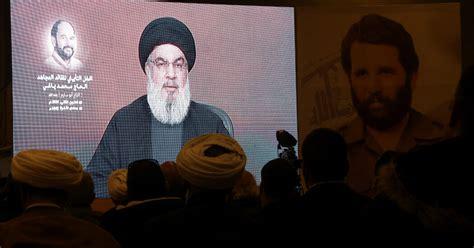
Hezbollah’s new leader says no diplomatic agreement before Israel ends ‘aggression’
In a TV address on Wednesday afternoon, new Hezbollah leader Naim Qassem said a diplomatic settlement to the terror group’s ongoing conflict was still possible, but only once Israel stops its military campaign in Lebanon.
In his second televised speech since taking the helm of the group following the Israeli assassination of longtime leader Hassan Nasrallah in September, Qassem said the war will only end after Israel stops its “aggression” against Lebanon, and only at that point will Hezbollah agree to indirect negotiations, under the mediation of its ally Nabih Berri, president of the Lebanese parliament.
“I will tell you very clearly, our conviction is that only one thing can stop this war of aggression, and that is the battlefield,” said Qassem in a pre-recorded address. He said he did not believe “political action” would bring about an end to the more than yearlong conflict.
“When the enemy decides to stop the aggression, there is a path for negotiations that we have clearly defined — indirect negotiations through the Lebanese state and Speaker Berri,” said Qassem. He said those talks could only proceed if they guaranteed “the protection of Lebanese sovereignty in full, without anything missing,” but did not provide further details.
Qassem claimed that Hezbollah is conducting a defensive war of attrition and has been preparing for a long confrontation since the end of the Second Lebanon War in 2006.
“We have tens of thousands of trained resistance jihadi combatants that are ready to die as martyrs,” he said, strengthened by their Islamic ideology, their training and their weapons, and nowhere in Israel would be off-limits to the group’s attacks.
In response to the Israeli “aggression,” Qassem said Hezbollah will continue firing rockets and drones at Israel, and that the launches of the past days are only a taste of what is to come.
Before and during Qassem’s speech was aired on Wednesday, long-range rockets from Lebanon targeted central Israel, setting off sirens in a wide swath of cities and towns surrounding Tel Aviv, causing damage but no injuries. As of Wednesday afternoon, more than 120 Hezbollah rockets had been fired at Israel throughout the day, the IDF said.
The new Hezbollah leader accused Israel of aiming to defeat the terror group as a first step to conquering Lebanon, and subsequently to “change the map of the Middle East.”
Hezbollah started the war on the northern front in October last year, a day after Hamas’s massive October 7 attack, and has been attacking the Jewish state with rockets, drones and missiles on a near-daily basis ever since. This past September, Israel launched a major campaign against the group, eliminating most of its senior leadership and launching a ground offensive to clear southern Lebanon of the vast terror infrastructure Hezbollah built there in the past two decades.
Touching on the heavy toll the war has imposed on the Lebanese civilian population, Qassem claimed that it is the “price to pay for victory,” and denied that there were frictions between displaced Shiites and other groups inside Lebanon, despite evidence to the contrary.
According to Lebanese health authorities, more than 3,000 people have been killed in Israeli strikes on Lebanon over the last year, the vast majority in the past six weeks, a figure that is thought to include civilians and combatants but is likely not complete. Hezbollah stopped consistently updating the number of its members killed since the uptick in cross-border violence in September 2024. The IDF estimates that some 3,000 Hezbollah operatives have been killed over the past year.
The attacks on northern Israel since October 2023 have resulted in the deaths of 40 civilians. In addition, 61 IDF soldiers and reservists have died in cross-border skirmishes and in the ensuing ground operation launched in southern Lebanon in late September.
Qassem also commented on the capture of a top Hezbollah naval operative in north Lebanon by Israeli commandos last week, calling it a “humiliation” for Lebanon and demanding explanations from the Lebanese Armed Forces and UNIFIL, in particular from the German contingent, which mans a naval patrol.
The leader of Hezbollah, who recorded his address before the outcome of the US election was declared, said the results of the vote would have no impact on any possible ceasefire deal to end the ongoing war.
“We don’t base our expectations for a halt of the aggression on political developments… Whether [Kamala] Harris wins or [Donald] Trump wins, it means nothing to us,” he said. “What will stop this… war is the battlefield.”
Source » timesofisrael.com





